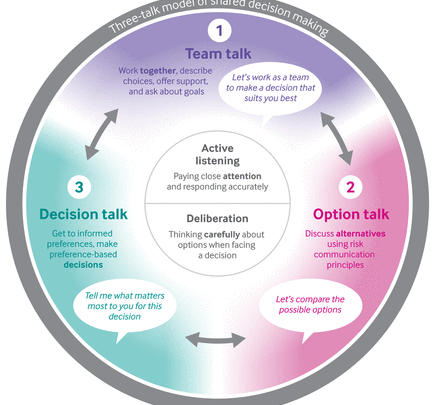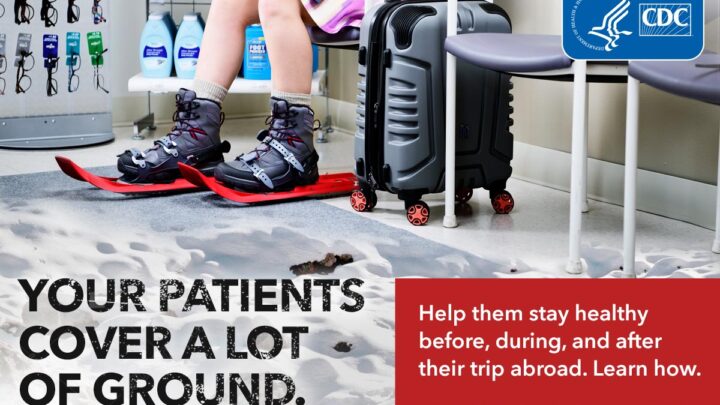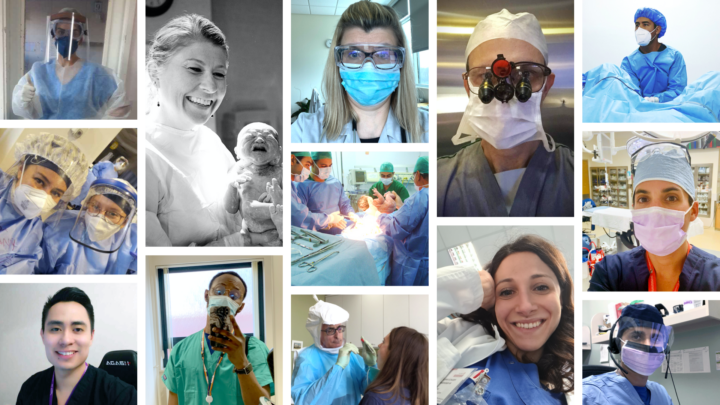
Many U.S. states are grappling with questions regarding titles, independence, and more—when it comes to nurse practitioners and other non-physician medical professionals.
According to the Washington Post, “[A] Florida bill would have prevented non-physicians from using several titles such as doctor of medicine, physician, medical resident and hospitalist. (Gov. Ron DeSantis vetoed it in June.) A near-identical measure became law in Georgia this year and Indiana in 2022. California ordered a nurse practitioner to pay nearly $20,000 for advertising herself as ‘Doctor Sarah,’ based on a law that several nurses are now challenging…
Doctors and nurses don’t agree on what to call the issue. To the AMA, it’s a matter of less experienced professionals attempting to escape from physicians’ supervision. To the American Association of Nurse Practitioners, it’s a battle for ‘full practice authority.’
Whatever its name, how much leeway non-MDs have to test, diagnose, prescribe and treat illness — and what they should call themselves while they do so — is a question that is changing medical care, particularly in underserved areas. As nurse practitioners’ and other medical professionals’ authority expands, patients in those communities could eventually move through the health-care system while rarely or never seeing a doctor…”
State legislation on non-physician titles
The use of the title “Doctor” by non-physicians in the United States has been increasingly regulated through state-specific legislation. The focus of such laws is to ensure clarity in healthcare settings and protect patients from potential confusion regarding the qualifications of healthcare providers. Many examples of this exist today; here are some examples that can help:
- Georgia: Under the “Health Care Practitioners Truth and Transparency Act” (Senate Bill 197), non-physicians with doctoral degrees (e.g., nurse practitioners or physician assistants) can use the title “Doctor,” but must explicitly state they are not medical doctors or physicians in clinical contexts or advertisements. Violations can lead to disciplinary actions from professional boards
- California: The California Medical Association (CMA) and the American Medical Association (AMA) have strongly supported restrictions on the use of “Doctor” by non-physicians in clinical settings to maintain patient clarity. Legislation and court cases in California emphasize the necessity of distinguishing between medical doctors and other doctoral professionals in healthcare
- Florida and Illinois: Similar laws are under consideration or in place, focusing on advertising and title use in patient interactions. These laws often require transparency about the provider’s specific qualifications
Broader Trends: Many states have enacted or are drafting “truth in advertising” laws, often led by medical associations, to ensure clear communication of healthcare credentials. These measures aim to clarify professional roles to prevent misleading patients about who is providing
Overall, state laws vary in their specific language and enforcement mechanisms. The trend reflects growing concerns about patient safety and informed decision-making in healthcare. For accurate and localized guidance, reviewing specific state statutes or consulting legal resources is recommended.
For further information on the subject, we recommend reading the following resources:
American Medical Association (AMA) policy finder
California warily watches ‘not-a-doctor’ wording in Senate bill
State-by-state naming conventions – 2014 Pearson Report
Physicians have strong opinions on this issue.
Who can use the title doctor according to health experts?
Here is more of what Sermo physicians have to say on this topic—their medical perspectives and opinions—in their own words:
“Nursing staff must be prepared to contribute to medical action, but not supplant it.”
Family Practice, Venezuela
“I have a thought to float. Instead of calling real MDs and DOs Doctor, why don’t we put the credentials FIRST and use the honorific MD, pronounced EmDee. Likewise, DO pronounced DeeOh. We have already lost the battle with DPT DNP. DPS. Let’s change the game-field instead of leveling the playing ground.
—M.D. Berger” —Pediatrics, U.S.
“The work of nurses in communities with difficult access to health systems is essential, they must be 100% trained to identify and refer patients who require immediate medical attention.”
—G.P., Mexico
“Physicians do not own the title of “Doctor.” The AMA and other organizations are not fighting against PhDs, EdDs, PsyDs from calling themselves Doctor. The problem is society equates a care giver as a physician when titled “Doctor.” There’s no easy answer for this.”
—Emergency Medicine, U.S.
“As a psychiatrist, I got in the habit of using the “physician” term before identifying as a psychiatrist so as not to be misidentified as a psychologist. Once in a while I was asked what was the difference !!”
—Psychiatry, U.S.
“Doctors should not have to sign off on a nurse practitioner’s work. Nurse practitioners should be limited in scope of practice to the level of education they have achieved and take responsibility for and the liability risk for any work they do on their own. This will be the only way that advanced practitioners will accept appropriate limits to their scope of practice. If an MD has to sign off on everything an NP does, the NP can pass the buck if something goes wrong. Having an MD actually review and sign off, accepting responsibility even if they haven’t actually seen the patient, is a hoax, at best.”
—Proctology, U.S.
“NPs and PAs don’t go into rural and underserved communities as the norm. The numbers show that physicians do this far more often (myself included). We don’t have a doctor shortage— we have a shortage of residency spots available for doctors that finish medical school and can’t match. They aren’t allowed to practice medicine without doing a residency, but NPs and PAs that have far less training can. This needs to stop. We need more residency spots to combat the “physician shortage.” It is the great lie that NPs and PAs are selling that they deliver better or comparable care. The studies they cite are all done under physician supervision. They deliver great care WHEN IN A TEAM THAT IS LED BY A PHYSICIAN. When physicians are replaced by physician extenders, it is not done to improve access to care. It is done to save money by corporations. And the patients suffer for it. And stop confusing patients by calling yourself “doctor.” Your DNP doesn’t equal my MD. Period.”
—Otolaryngology, U.S.
“I am a physician who occupies the atypical position of having practiced as a nurse (but not a nurse practitioner or nurse anesthetist) prior to pursuing a medical degree. I have also as a physician trained students in a nurse practitioner program through an Ivy League school program and so I believe I have a somewhat unique perspective on this topic. I have nothing but the highest admiration for the incredibly important role that nurses play in the whole of patient care. I do however clearly see the distinction between the training a physician receives and that which an NP or PA receives. In my opinion, perhaps the greatest distinction between the training of physicians and that of advanced practice non-physicians is that the training of physicians is completely directed toward establishing a DIAGNOSIS and then crafting a plan of care to address it. To this end, doctors have traditionally “written the orders” and nurses have “followed the orders.” The middle ground occupied by advanced practice non-physicians involves diagnostic methods – no question. The problem with equating the two is the level of education required to perform these duties. There is unquestionably a vastly superior degree of education in the education to learn DIAGNOSIS and TREATMENT in a medical education that simply is not present in an advanced practice non-physician education – I know this because I have experience in all of these area of medical care and training. To the gentleman who purports that advanced practice non-physicians are able to “refer to a specialist” when they are out “out of their depth” neglects to recognize that the physician will likely perform much better diagnostically and provide better therapeutic intervention before consulting a specialist than a “mid-level” (apologies, no insult intended, just too cumbersome to write out a PC term every time) practitioner would. In my experience (30 years as a board certified FP), the mid-level practitioners are not as well equipped to address more complex patients such as the diabetic with HTN, renal disease, elevated lipids and cardiovascular disease. Most mid-levels are well trained to address acute illnesses (fever, ST, gastroenteritis, dermatitis, UNCOMPLICATED diabetes or HTN or hyperlipidema etc) but as the diagnoses become more numerous and complex the mid-level provides fall ”out of their depth” far earlier than the physician. There is absolutely a need for the vital role that mid-levels play but we cannot confuse their role with that of a physician who has trained 4 years in medical school and then 3-12 (or more) years in residency and fellowship. We are colleagues and should recognize and respect the place that we all hold in caring for our fellow humans.”
—Family Medicine, U.S.
“The debate surrounding the use of the “doctor” title by non-physician medical professionals is a complex and contentious issue. It revolves around questions of professional autonomy, scope of practice, and patient care. Physicians often argue that restricting the title to medical doctors is necessary to maintain the quality and safety of patient care. Medical doctors have raised alarms, for reasons that include doubts about the quality of NP education and pique because nurses with doctorate of nursing degrees can call themselves doctors in most states…”. On the other hand, non-physician medical professionals, such as nurse practitioners, advocate for greater autonomy and “full practice authority,” believing that they can provide high-quality care independently.
The crux of the matter lies in finding a balance between ensuring patient safety and addressing the shortage of healthcare providers, especially in underserved areas. Research has shown mixed results on the impact of non-physician-led care, with some studies suggesting comparable quality of care and others pointing to potential differences in patient outcomes.
Ultimately, this debate reflects the evolving landscape of healthcare and the need to adapt to changing demographics, healthcare delivery models, and patient expectations. It’s crucial that any decisions made in this regard prioritize patient safety, access to care, and collaboration among healthcare professionals to provide the best possible outcomes for patients. Finding common ground and engaging in constructive dialogue will be essential to navigate these complex issues effectively.”
—G.P., Turkey
Interested in more? Check back any time and follow us on Facebook, Twitter, and LinkedIn for the latest and greatest in physician insights.
Are you a physician or healthcare practitioner?
Explore the many benefits of Sermo’s medical community and join in on all the exciting conversations when you sign up for free today.
Everyday thousands of Sermo member physicians from diverse backgrounds and experiences exchange knowledge with each other. Sermo is the original medical social network that empowers today’s physicians. Over 1 million fully verified physicians across more than 150 countries come to our platform to talk with peers, participate in paid medical studies, solve challenging patient cases, contribute to the world’s largest database of drug ratings – and enjoy a few laughs along the way.














